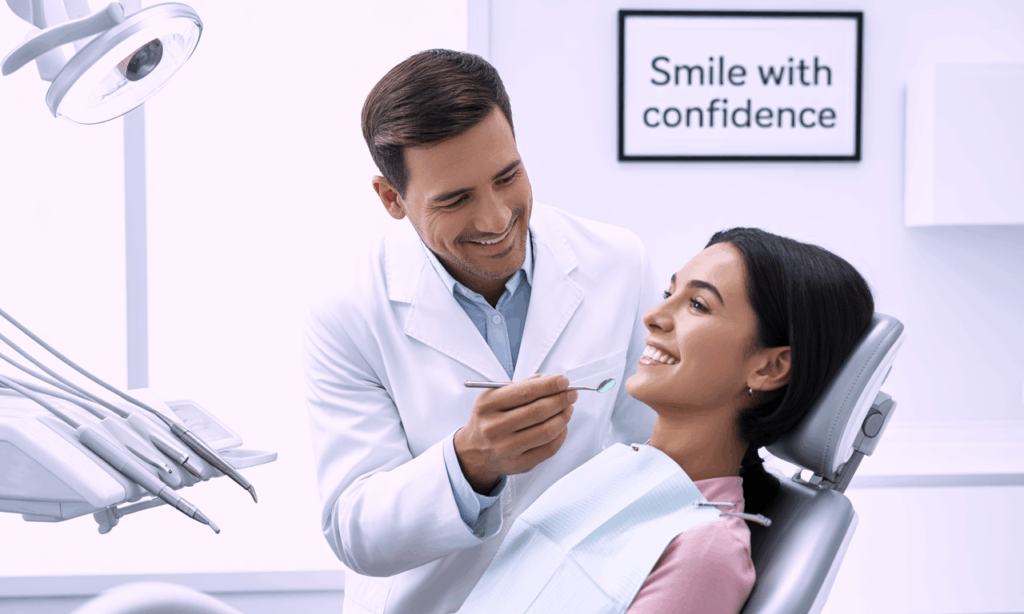Dental Products & Alpha-Gal Syndrome: What You Need to Know for a Safe Smile 🦷
If you have alpha-gal syndrome, certain dental products could trigger allergic reactions. Learn which materials to avoid, how to talk to your dentist, and steps for protecting yourself in the dental chair. Alpha-gal syndrome is changing the way many people think about food, but did you know it can also affect your dental care?
The American Dental Association just published findings that people with alpha-gal allergies may react to dental products containing animal-derived ingredients. This post explores what that means and how you can keep your oral health without risking a reaction.
What is Alpha-gal Syndrome?
Alpha-gal is a sugar molecule found in most mammals (but not in humans). Being bitten by certain ticks can cause some people to develop an immune response to alpha-gal, making them allergic to red meat and other mammal-derived products. Symptoms might include hives, stomach upset, trouble breathing, or even anaphylaxis.
Which Dental Products Pose a Risk?
According to the ADA’s review of research from 1990-2024, many common dental materials may contain animal-derived substances that could trigger reactions. Here are some culprits:
-
Hemostatic agents (used to stop bleeding) made from animal collagen or gelatin
-
Bone or gingival graft materials (often derived from animal sources)
-
Products like toothpastes, prophylaxis pastes, tooth-whitening gels, artificial saliva substitutes, mouth rinses, lip balms, etc., if they contain gelatin, collagen, glycerin (from animal sources), carrageenan, or other animal-derived additives
What You & Your Dentist Can Do
-
Talk about it up front: If you have alpha-gal syndrome, make this known before your appointment, and provide details of what has triggered reactions in the past.
-
Ask for ingredient transparency: Not all dental products must list animal-derived ingredients. Don’t hesitate to request this from your dentist or look for human-derived or synthetic alternatives.
-
Work with your allergist or immunologist: They can help identify your personal triggers and advise safe product choices.
For Dentists & Dental Professionals:
-
Review the patient’s history of alpha-gal syndrome, past reactions, and medical consults.
-
Avoid using dental materials known to contain animal derivatives, especially in high-risk individuals. Use synthetic or non-animal based alternatives when possible.
-
Be prepared to manage an allergic or anaphylactic reaction—it’s handled similarly to other acute allergic emergencies.
Why This Matters
-
Growing numbers: Over 110,000 suspected cases of alpha-gal syndrome were identified in the U.S. between 2010-2022—and that’s almost certainly an undercount.
-
Invisible exposures: Many people with alpha-gal may not realize how many dental products may contain animal-derived ingredients. Being caught off guard in the dentist’s chair can lead to serious allergic reactions.
-
Patient empowerment: With awareness and communication, people with alpha-gal can receive dental care without compromising safety or comfort.
Takeaway
If you or someone you care about has alpha-gal syndrome, awareness & communication are your strongest defenses. Before any dental procedure:
- Disclose your alpha-gal diagnosis
- Ask about all products and whether they contain gelatin, collagen, glycerin (animal-based), or other animal-derived ingredients.
- Collaborate with both your dentist and allergist to develop a safe care plan.
A beautiful smile shouldn’t come at the cost of your health. For more information click here










